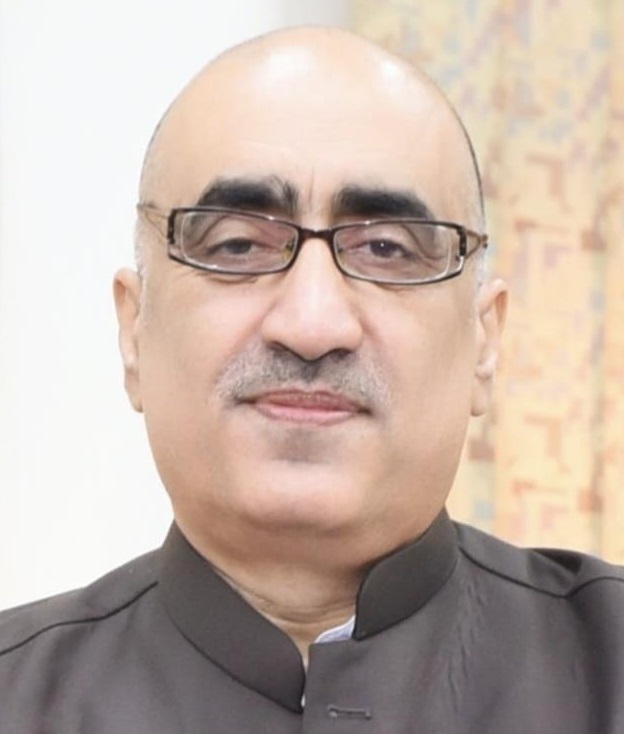Dr Liaqat Ali
According to the World Health Organization (WHO), health is defined as “A state of complete physical, mental, and social well-being and not merely the absence of disease or infirmity.” In 1998, the WHO expanded this definition to include spiritual well-being as the fourth dimension of health. However, the operational definition of ‘complete’ health remains unclear, as the complexities of human well-being transcend a simple description. The elemental harmony once central to the creation of human beings seems to have evolved into a state of dysfunction. The above definition may represent a small fraction of the true scope of health, as the unseen and often invisible illnesses, much like the unmeasurable parts of an iceberg, challenge the very idea of ‘complete’ well-being. This suggests that the current definition of health might be rendered ‘obsolete’.
April 7, 2025, will mark the World Health Day, launching a year-long campaign on maternal and newborn health, titled “Healthy Beginnings, Hopeful Futures”, the campaign aims to urge governments and health community to intensify efforts to reduce preventable maternal and newborn deaths while prioritizing women’s long-term health and well-being.
On this day, rallies will be held across Pakistan, and conferences will take place in five-star hotels at the taxpayers’ expense. Unfortunately, many of these events will be dominated by non-health stakeholders delivering abstract speeches. These talks will likely make lofty pledges to align with sustainable development goals, initially framed as Millennium Development Goals.
True pledges are valuable, as trust is earned and maintained through consistency. However, pledges made for political optics or without a clear roadmap often lack sustainability. These pledges, seemingly intended to gain popularity, remind me of Euripides’ quote: “When one with honeyed words but evil mind persuades the mob, great woes befall the state.”
Pakistan continues to lag behind the Millennium Development Goals. According to recent data, 186 mothers per 100,000 die following childbirth in Pakistan, with the highest rates in rural areas and Balochistan. Additionally, the under-five mortality rate (U5MR) stands at 74 per 1,000 live births, and 39 neonates per 1,000 fail to take their first breath after birth, leaving parents with heartbreak.
These numbers should ideally be in the single digits. The cost of complications during childbirth is equally disturbing. Obstetric trauma leading to vesicovaginal fistula is a prevalent cause of urinary incontinence in women. The foul smell of uncontrolled urinary leakage in postpartum mothers is a painful reminder of the stigma these women face – considered outcasts of society, abandoned and forgotten. With expressions of anguish, they speak of their pain and fear – fear not only of their condition but of further disgrace and rejection. In Pakistan, complications during childbirth are illnesses that only women bear.
This elegy continues with the failures of both governmental priorities and organizational mismanagement. Despite our promises, we have failed to meet even six of the Sustainable Development Goals from 2015-2025. For over three decades, we have failed to eradicate polio. We continue to have a high incidence of tuberculosis, which, if viewed sarcastically, could be dubbed the ‘National Disease of Pakistan’. We also have the highest rates of Hepatitis B and C, silent killers that affect the people of all ages, regardless of gender.
The biggest challenge we now face is antimicrobial resistance (AMR). Antibiotic resistance, flagged by health sectors worldwide, has reached critical levels. By 2050, more than 50% of mortalities will result from simple urinary tract infections (UTIs) due to AMR. Since 1987, no new antibiotics have been discovered, and this growing crisis threatens to undo all the advancements made in modern medicine, including human organ transplantation.
Furthermore, climate change is exacerbating health issues, particularly the rising incidence of cancers. Once considered diseases of old age, cancers such as bladder tumors in children and renal cell carcinoma in young adults have become increasingly common. These cancers present in more aggressive, polygenic forms.
However, we must acknowledge the efforts of provincial initiatives, such as those in Sindh, where public-private partnerships have brought about significant improvements. Institutions like SIUT, NIVCD, the Kidney and Liver Institute, and Indus Hospital have made a remarkable difference in healthcare delivery. The Punjab Government’s flagship program, the PKLI, is also commendable. With the devolution of health as a provincial matter following the 18th Amendment, the responsibility now lies with provincial governments to further these efforts.
April 7, 2025, should also serve as a moment of self-reflection for the public. We are partly to blame for the catastrophic state of health in Pakistan. Despite numerous awareness campaigns, such as STOP SMOKING, tobacco use remains widespread, contributing to cancers and ischemic heart disease. Misleading media campaigns from the tobacco industry and energy drink manufacturers have influenced public behavior, with many people, especially youth, continuing to use these harmful substances. In rural areas, there is still reluctance to seek even minimal antenatal care, as traditional birth attendants remain the preferred option.
The medical community is not without fault either. Many so-called ‘seven-star’ doctors have become disconnected from the needs of the population, driven more by financial incentives than by a commitment to community health. The absence of a robust health research ecosystem has led many in the medical field to focus on replica research rather than developing translational research that bridges the basic and clinical sciences.
To protect the future generations from falling into the abyss created by market forces and bureaucracy, we need to establish a translational research ecosystem that prioritizes the health of the nation.
The writer is a clinician, medical educationist and researcher. He is working as a professor of urology at the Institute of Kidney Diseases (IKD), Hayatabad Medical Complex (HMC), Peshawar. He can be reached at: liaqatikd@gmail.com.
Related Posts






Health sector is now a big industry, particularly in Pakistan
Health sector is now a big industry, particularly in Pakistan
Health sector is now a big industry, particularly in America